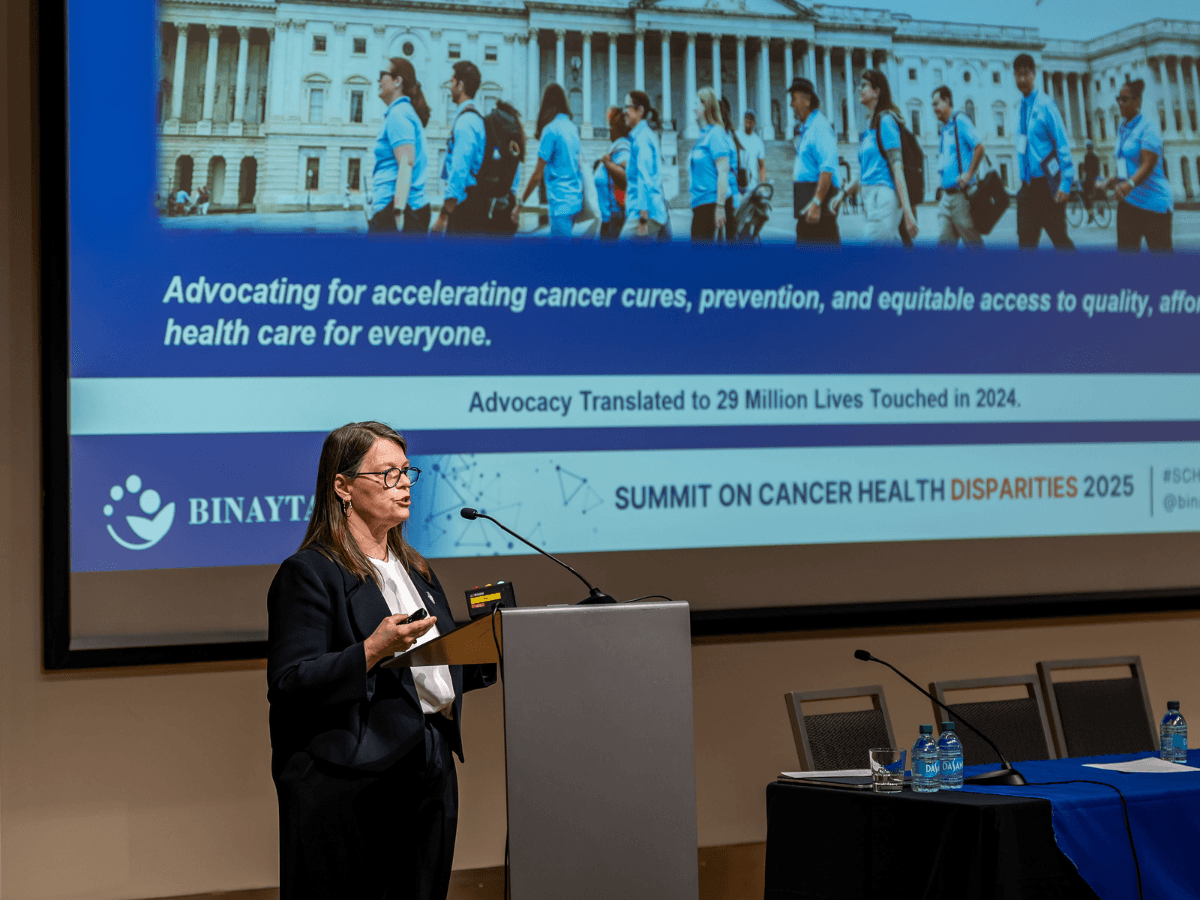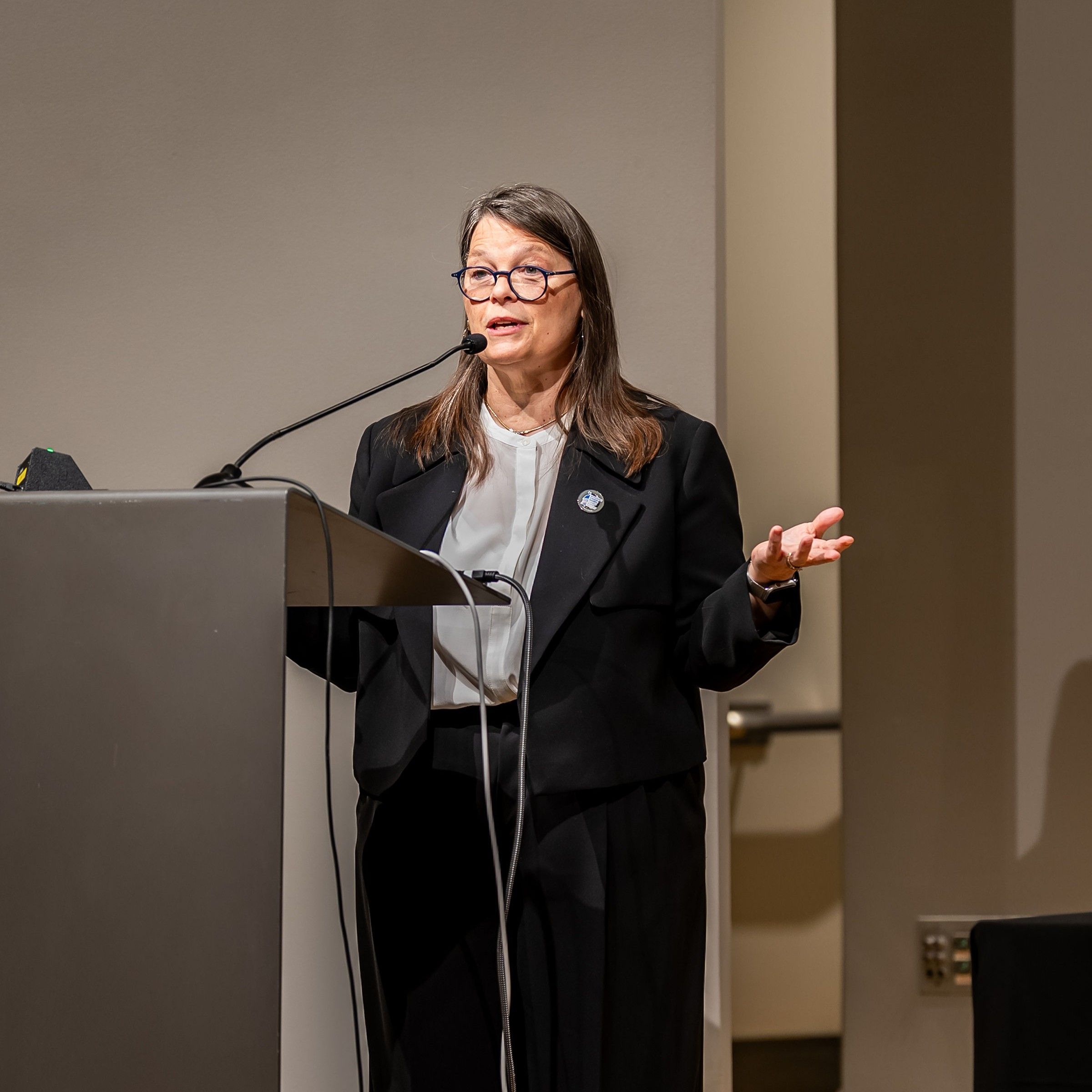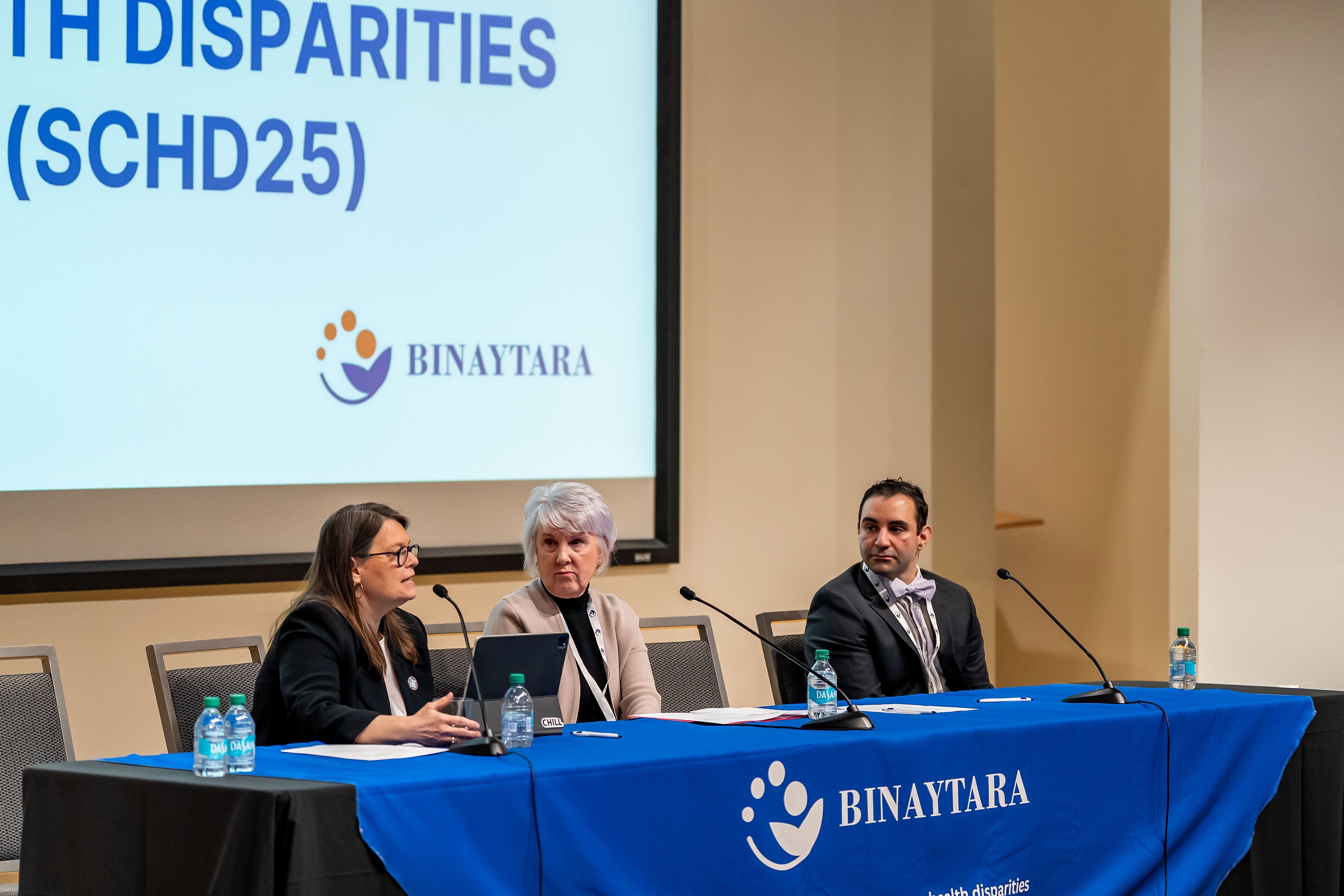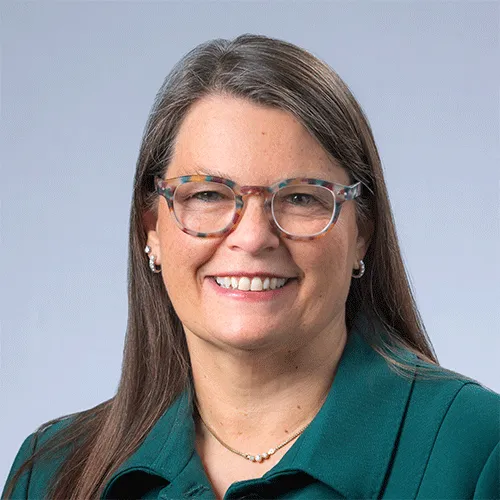ACS CAN President Speaks on Medicaid, Advocacy, and Reform at the Summit on Cancer Health Disparities

Author
Binaytara Team
ACS CAN at SCHD25
On April 27, 2025, the president of the American Cancer Society Cancer Action Network (ACS CAN), Lisa Lacasse, took center stage at the Summit on Cancer Health Disparities (SCHD25) to deliver a riveting keynote speech on “Developing Effective Advocacy Campaigns.” Alongside other leaders at the forefront of oncology and patient advocacy organizations, Lisa highlighted ACS CAN’s impactful work in elevating the voices of cancer patients across all branches of government in all 50 states, including Puerto Rico and Guam.

Lisa Lacasse delivering a keynote speech on at (SCHD25)
The Summit on Cancer Health Disparities (SCHD) is a premier annual continuing medical education conference organized by Binaytara, a global oncology nonprofit based in Bellevue, Washington. This annual event took place in Seattle and brought together oncology professionals, researchers, policymakers, and other stakeholders committed to addressing the factors contributing to cancer health disparities through evidence-based interventions. Lisa led Session 14 on the last day of the conference, providing a powerful segue into the highly anticipated closing debate on the “Crisis in U.S. Healthcare.”
Following an introduction by session chair Dr. Dan Milner, executive director of the Access to Oncology Medicines (ATOM) Coalition, Lisa began her presentation by recognizing earlier speakers who had boldly used their voices to drive change in communities across the country. She then introduced ACS CAN’s unique approach to advocacy, with a strong focus on policy change. Lisa explained how the organization reduces cancer burden, particularly during election seasons, when elected officials are most accessible to their constituents. She emphasized the importance of returning to a bipartisan stance on cancer-related issues, especially in light of the proposed NIH budget cut that threatens the entire biomedical research ecosystem.
A Strategic Vision for Advocacy and Reform
Reframing the path to cancer equity, Lisa laid out a bold and strategic vision for advocacy that can truly move the needle on cancer outcomes. She emphasized the importance of identifying key stakeholders, assessing their level of awareness, and educating accordingly, while also analyzing the political environment and stakeholder dynamics. She then outlined the pillars of a successful advocacy campaign: engaging a grassroots network, working in coalition, amplifying the patient voice through strategic communications, and direct lobbying.
As an example, Lisa presented a compelling overview of ACS CAN’s strategic advocacy work, highlighting Medicaid expansion as a critical health equity issue and sharing insights from successful campaigns that are shifting cancer outcomes nationwide. Under Lisa’s leadership, ACS CAN led a successful campaign in North Carolina that resulted in Medicaid expansion, providing health insurance to 650,000 previously uninsured people. The organization has also championed legislation in over 20 states requiring insurance coverage for biomarker testing, essential for accessing precision medicine in cancer care.
Panel Perspectives on Patient Advocacy
Her session at SCHD concluded with a panel featuring Tricia Johnson, executive director of Northwest Hope and Healing, and Jourdan Cruz, program therapist at the Healing Center, to highlight diverse perspectives on advocacy. Tricia spoke about the staggering costs associated with a cancer diagnosis and treatment, and her organization’s efforts to ease patients’ financial burdens. Similarly, Jourdan shared insights into the launch of a suicide prevention program at the University of Washington, which focuses on universal mental health screening for all patients.

Lisa Lacasse, Tricia Johnson, and Jourdan Cruz (left to right) on a panel discussion at SCHD25
The session chair posed questions that revealed deeper insights into various aspects of advocacy, including failed campaigns, areas for improvement, and cancer research funding. Lisa closed the panel with a powerful reminder of the strength of advocacy, stating,
“Elected officials do care about this. They care about the hospitals that are in their districts. They care about the health systems that are in their states. And our ability [as advocates] to tie the cancer story and the cancer burden to those areas in which an elected official cares about gives us a lot of power.”
About Lisa Lacasse

Lisa Lacasse, President, ACS CAN
Lisa is the president of ACS CAN and leads the nationwide public policy advocacy efforts for the ACS, overseeing a D.C.-based team that empowers volunteers across all 50 states to drive evidence-based policy change aimed at reducing the cancer burden. With a career spanning government, nonprofit, and clinical research sectors, Lisa brings deep experience in public service and organizational leadership. Before joining ACS, she served as Chief Financial Officer at the National Institutes of Health (NIH) Clinical Research Center and spent seven years working for the governor of Maine, and currently serves on the board of the Campaign for Tobacco Free Kids. She holds a Master of Business Administration from the Wharton School at the University of Pennsylvania and a Bachelor of Arts degree from the University of Vermont.
About Binaytara
Binaytara is a leader in global oncology dedicated to eliminating cancer disparities worldwide. As the largest organizer of hematology/oncology conferences in the United States, Binaytara educates thousands of doctors, oncologists, and hematologists, ensuring they stay updated on the latest advancements in cancer care.
Binaytara's impact extends across the globe. In India, they have partnered with the government to establish a transformative palliative care program in Madhya Pradesh. In Nepal, they operate the only cancer hospital in Madhesh Province in collaboration with local health organizations, offering cervical cancer screenings and comprehensive training for physicians and nurses.
Additionally, Binaytara has spearheaded the creation of Nepal’s first bone marrow transplant center in the capital city of Kathmandu.
Disclaimer: The views and opinions expressed by Lisa Lacasse are her own and do not necessarily reflect the official positions or policies of the American Cancer Society Cancer Action Network or any other affiliated organizations. Her comments are based on her professional expertise and experience.